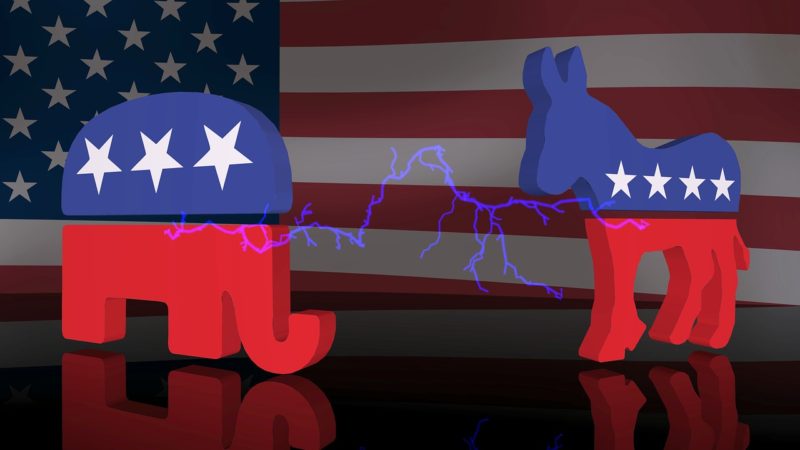One of the biggest challenges facing our current political process is how can we actually solve problems when we cannot muster even a modicum of useful debate about anything. The latest example of this unproductive dynamic is the propaganda war between capitalism and socialism.
One thing that has become clear is that neither the left nor the right has any idea what they are talking about. As a result of the desire of people on both sides to win this clash of dueling propaganda, we have another brick in the wall of political futility. By understanding the origins and development of these concepts, we can rid ourselves of the hyperbole and confusion that is woven throughout this discussion.
Socialism versus the welfare state
The Feudal Age was a model of more or less full employment, since the vast majority of people were engaged in agriculture. Granted, given the lack of surplus production, droughts and floods brought regular bouts of scarcity and starvation, but in normal times, most people grew their own food, and guilds kept the ranks of tradesmen at a steady, albeit uncompetitive, level. The rapid industrialization of the late 18th and 19th centuries unleashed enormous productivity and prosperity, but also brought about mass dislocation and unemployment in the troughs of economic cycles.
Gradually, countries began to adjust to this modern reality, and a new relationship between citizens and the state emerged. Much to the surprise of many, the concept of the welfare state began in 1870 with “Blood and Iron” Otto Von Bismarck. The concept was simple: The state, which was benefiting handsomely from the increased financial abundance of industrialization, would provide a type of social safety net to those who fell through the cracks of the rapidly changing economy. Gradually, this spread throughout European countries and, to a more limited extent, in the U.S.
Modern Europeans have always had a different conception of the relationship of the state to its population. Their social contract included an explicit requirement to provide minimal provisions of goods such as health care, income, and social services. This inclination is so strong that even after providing the heroic leadership during a period of existential crisis in WWII, Winston Churchill was defeated for reelection in 1945 by an opposition party promising to focus on these issues.
In the United States, when we talk about social security, welfare benefits, Medicare, and other social services, it is not socialism we are referring to. It is an expansion of the existing welfare state. Socialism, on the other hand, is defined as a political and economic system whereby the state owns the means and distribution of production.
Moreover, what is called “democratic socialism,” in the European tradition, is a broader expansion of the welfare state, not a takeover of the means of production by the state. For example, the Heritage Foundation, a right-leaning think tank, ranked the U.S. 12th on their 2019 Index of Economic Freedom. All eleven of the countries ranking higher have expanded social welfare conditions, including universal healthcare. Another good example is Sweden, often considered a model of European-style democratic socialism, where all children are given an education voucher and can use it for public schools, state-sponsored charter schools or even for-profit private schools. Complete educational freedom is given to parents, facilitated by the state.
By using socialism and the welfare state interchangeably, ideologues on both sides are engaging in propaganda-speak, not intelligent debate. As Senator Bernie Sanders, the leading advocate of democratic socialism in the U.S. today, said, “When I use the word socialist–and I know some people aren’t comfortable about it—I’m saying that it is imperative we create a government that works for all and not just the few.” He further goes on to distance himself from Marxist interpretations, saying, “I don’t believe government should own the means of production, but I do believe that the middle class and the working families who produce the wealth of America deserve a fair deal.” (This is not in any way an endorsement of Sanders’ view; it is merely an explanation of his use of the phrase democratic socialism.)
Dictatorial Socialism versus Democratic Socialism
One of the glaring, fatal flaws of real socialism is that it puts far too much power in the hands of the government. As Lord Acton averred, “power corrupts,” and the history of socialism has clearly taught us in Lenin, Mao, Castro and Hugo Chavez that once a person or small group of people gain control over the levers of government, they are exceedingly reluctant to surrender that power, no matter how much damage it causes. This is why dictatorial socialism has always proven to be a distinctly disastrous economic and political framework.
Equally clear is the history of democratic socialism. The very different social contracts of northern and central European countries allow them to incorporate a capitalist business environment with a larger welfare state. And as their leaders are chosen through open and fair democratic elections, this form of political organization has achieved a level of prosperity, as well as goods and services, that the inhabitants of those countries desire.
The size and structure of a developed country’s welfare state should be the subject of intense, passionate debate. At the same time, if we want to have an intelligent, productive discourse on these topics, it is not wise to eliminate our chances of success before the discussion begins. Instead, we should use the tenets of innovative problem-solving to examine the facts and evidence, objectively consider all alternatives, and systematically determine what works well for us. A debate dictated by propaganda-speak from both sides will only lead to more division and dysfunction—and never a solution.



